
In this newsletter:
QUBES News
Kudos
Partner News and Opportunities
Resources and Opportunities
QUBES News
New Collaboration with iBEARS
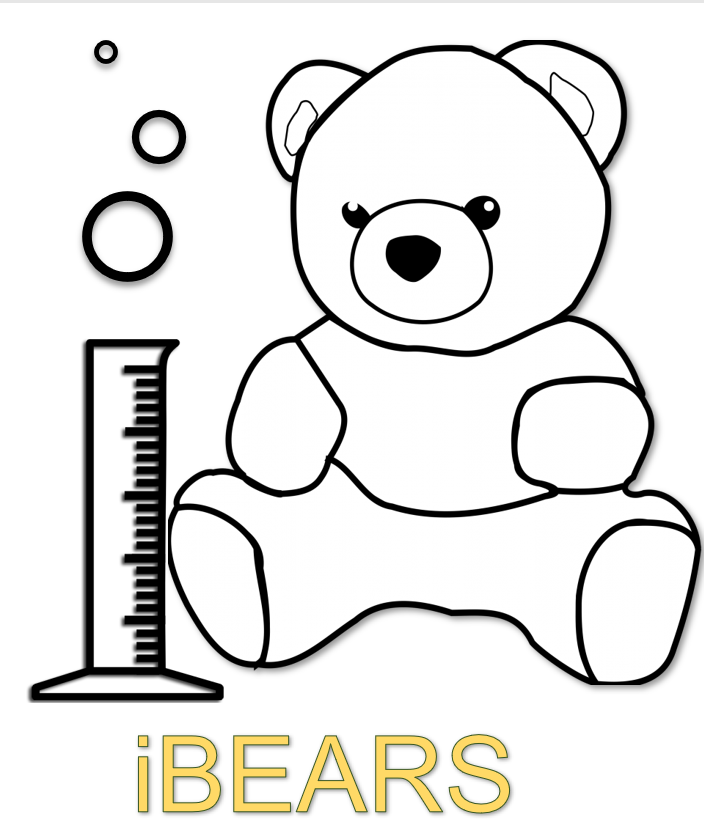
QUBES has started a new partnership with iBEARS (Inclusive Biology Exploring Active Research with Students), which has recently received a grant through the NSF INCLUDES program.
iBEARS’ primary goal is to explicitly infuse the undergraduate curriculum with 21st-century skill development through training undergraduates (called Mentors) to guide middle-level science students (students in 4th-8th grade called Mentees) through the process of designing, conducting, and presenting a scientific research project. They will use their QUBES site as a hub for iBEARS collaborators and a repository for their resources.
Learn more about iBEARS and their planning grant here.
Thank You for Attending Our Partners@QUBES Leadership Summit
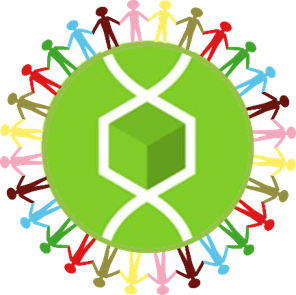
We loved having so many representatives--over 40 participants--from our partner organizations in the same (Zoom) room and to hear how integral QUBES has become to advancing our partners' goals.
We were especially proud to have representation from the many types of projects we support, from projects funded through RCN-UBE and IUSE awards to networks and communities, large and small, that use QUBES as their hub and workspace. We hope that the event was an opportunity to learn more about others’ projects and to make connections.
We’ve posted our notes in the QUBES Support Community for Partner Projects forum. We’d love this group to be a place where partners can share news, events, and resources...join if you haven’t already!
How QUBES Can Support Your Education Project
QUBES has a comprehensive project support infrastructure, built by and for STEM educators. Hosting a project on QUBES can help to address challenges such as building and coordinating your community, disseminating your products, and documenting your impacts.
Please visit our new Grant Services page to learn more about how QUBES can be used to support education projects. Or fill out this brief form, and we will get in touch with you.
Kudos
BioQUEST and QUBES Staff Members Publish Paper on Inclusive Teaching in Ecology and Evolution
Drew Hasley and Carrie Diaz Eaton, in collaboration with QUBES-EDSIN Fellows, have published a paper in Ecology and Evolution that provides guidance on best practices for inclusive teaching.
The paper “explores strategies, and directs scientists to resources to better cultivate an inclusive environment in three common settings: the classroom, the research laboratory, and the field.”
BioQUEST’s Stacey Kiser Named AAAS Fellow
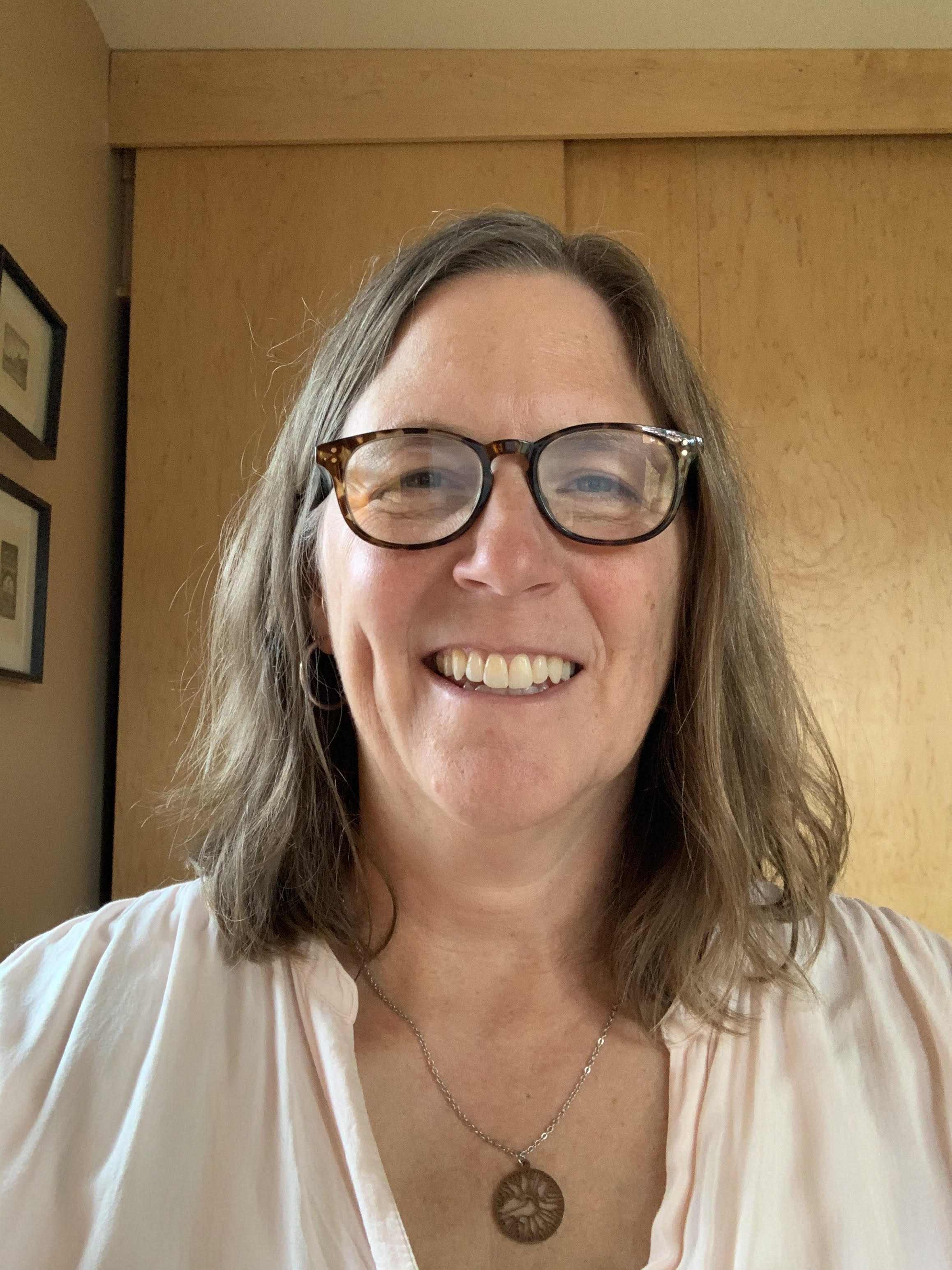
Congratulations to Stacey for being elected a AAAS Fellow in the section on education! Stacey teaches biology at Lane Community College in Eugene, Oregon, where her innovative teaching has benefited students for 25 years.
Stacey has been a national leader in biology education through her work as a president of the National Association of Biology Teachers, a PULSE Ambassador, as co-chair of the 2021 Gordon Research Conference for Undergraduate Biology Education Research, and through BioQUEST. In addition, she has played a key role in several NSF-funded projects including NSITE, Northwest Biosciences Consortium, and QB@CC.
Stacey says she’s looking ahead: "Teaching biology looks different now due to the pandemic. I look forward to what it will look like when we bring our evidence-based innovations back into the physical classrooms."
Stacey is a member of the AAAS Education Section, and will be recognized for her contributions to science education during the 2021 AAAS Annual Meeting.
BioQUEST’s Drew Hasley to Start as Postdoctoral Teaching Scholar at NCSU
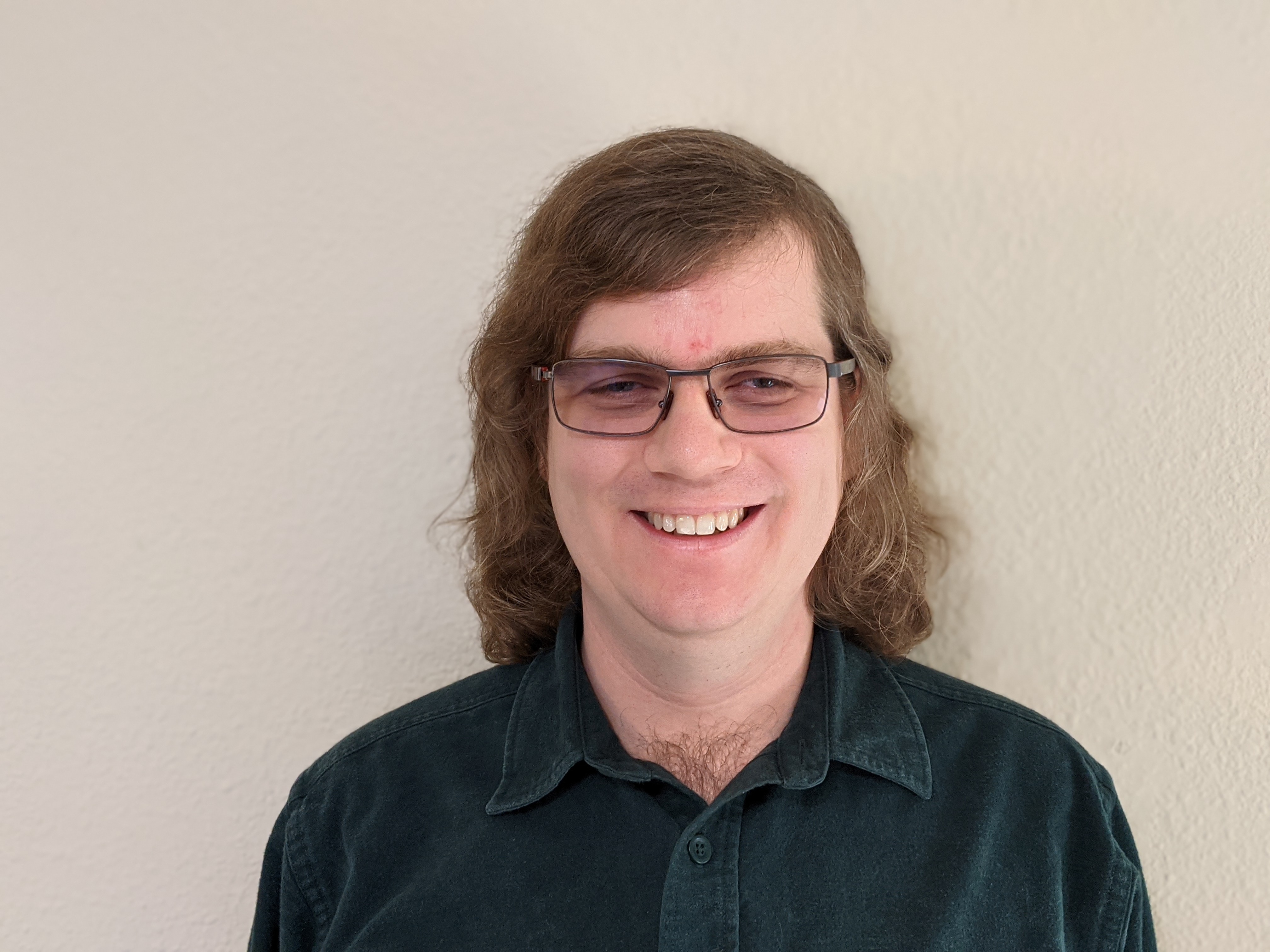
Congratulations to Drew Hasley, who has started as a postdoctoral teaching scholar at the NC State University Biotechnology Program, where he’ll be teaching and carrying out education research.
In 2016, Drew earned his PhD at the University of Wisconsin - Madison in Genetics, studying zebrafish embryonic development and the role of genetics and biotechnology in biodiversity conservation. He continued at UW as a research postdoc, focusing on the evolution of the metabolic regulatory response to oxygen availability across bacteria.
He has been integral to various education projects, including EDSIN, where he worked to make ecology education more inclusive, and BioQUEST, where he and Hayley Orndorf collaborated to launch the Universal Design for Learning Initiative. At NCSU, he's looking forward to designing an inclusive course on environmental DNA, bioinformatics, and their application to ecology and environmental science research, as well as studying implementation of UDL approaches in biology lab courses!
We look forward to continuing our collaborations with Drew.
BIOME Working Groups Present Final Products
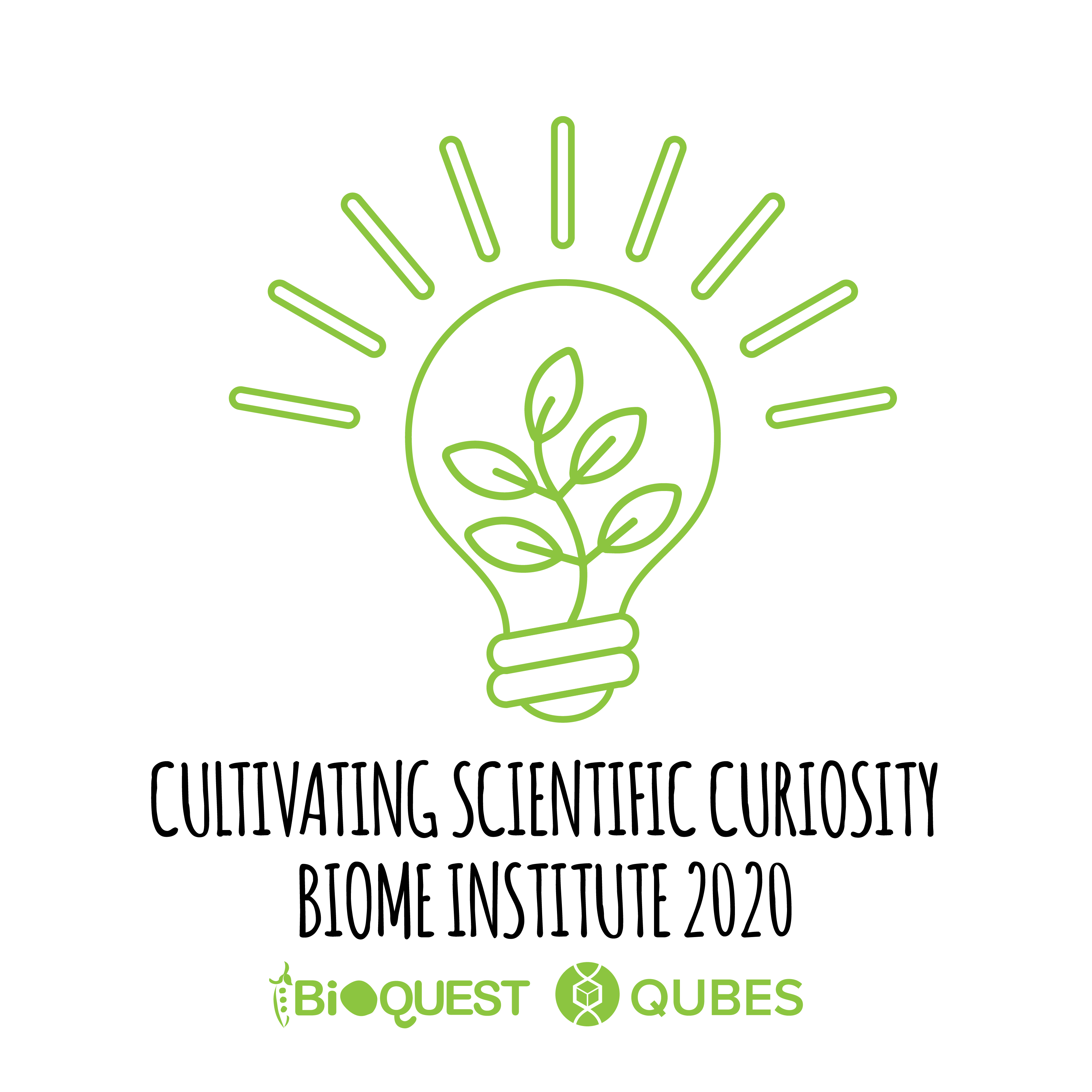
Check out the final product videos from the BIOME 2020 Institute working groups! Working groups focused on developing a range of undergraduate research experiences, from engaging, hands-on modules to course-based undergraduate experiences.
Congratulations to all who completed the Institute, both facilitators and participants, and stay tuned for more information about the 2021 workshop!
Partner News and Opportunities
HITS Opens Call for Case Fellows

Faculty and postdoctoral fellows devoted to the use of case studies and problem-based learning pedagogies can apply to become HITS Case Fellows!
The HITS network will train Case Fellows in the use of case studies based on HT data by using a yearly workshop. Case Fellows receive a yearly stipend and support to attend two workshops. Our HITS 2021 workshop will be held, tentatively, during the month of June 2021.
For more information, download our Case Fellows flyer or visit the HITS QUBEShub page.
The deadline is February 26, 2021.
NSF's BIT SURE Program Recruits Undergrads for Virtual Research Experience
Please encourage your undergraduate students to apply to the NSF BIT SURE Research Experience for Undergraduates (REU) Summer 2021. Hosted by North Carolina State University, this 10-week program focuses on advanced sequencing tools that are transforming the way biologists conduct research and inclusive science. Participants learn about sequencing techniques and participate in professional development opportunities. A series of workshops and learning opportunities promote diversity in science and learning.
BIT SURE participants receive a stipend.
Download the BIT SURE program flyer.
The application is available on the BIT SURE webpage.
The deadline is February 14, 2021.
ATTN Community College Faculty: Invitation to Join the Computational Education Consortium
The team behind a new RCN-UBE proposal (Computational education consortium: Big data analysis techniques for reproducibility and transparency in life sciences) is recruiting community college faculty members to join the Computational Education Consortium (CEC). The CEC will bring together faculty who are passionate about establishing best practices for incorporating big data analysis techniques in life sciences curricula at community colleges.
Participation will be compensated, and the project has multiple avenues for engagement. You can:
- Be part of the Steering Committee (Assessment Committee, Infrastructure Committee, Curricular Committee, Faculty Training Committee)
- Be part of the External Advisory Board
- Be part of the Network and participate in the workshop and teaching activities
- Help distribute information about planned teaching activities among faculties and students at your institution.
PIs include Serghei Mangul (University of Southern California), Melanie Melendrez (Anoka-Ramsey Community College), Keith A. Crandall (George Washington University), Stacey Finley (University of Southern California), and David Koslicki (Penn State University).
Contact Serghei Mangul (serghei "dot" mangul "at" gmail "dot" com) to get involved, and/or learn more about the proposal here.
SABER Launches Spring 2021 Seminar Series on Inclusion in Academic Biology
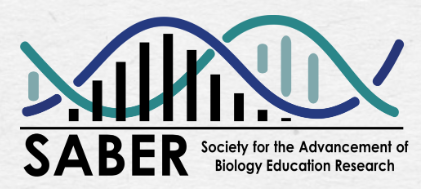
SABER is sponsoring a virtual seminar series "Striving for inclusion in academic biology," every other Thursday in Spring 2021 at 9:00 am PT. The series begins January 21, with Cynthia Bauerle, PhD, "Interrogating the center of STEM education." All sessions are virtual, free, and no registration is required. Find out more at the SABER website.
Resources and opportunities
Members of the QUBES team are always looking to meet others who have a passion for quantitative biology education. Reach out so we can help you gather your collaborators, move projects forward, and continue to move quantitative biology forward. Connect with us by submitting a support ticket.

From left to right: Sam Donovan (Director of OER), Carrie Diaz Eaton (Director of QUBES Consortium), Kristin Jenkins (Director of BioQUEST), Drew LaMar (Director of Cyberinfrastructure), and Jeremy Wojdak (Director of Professional Development).
Do you have a product or result from a QUBES sponsored activity? Help us measure our success by sharing your product or result with QUBES. Learn how to cite QUBES.
|